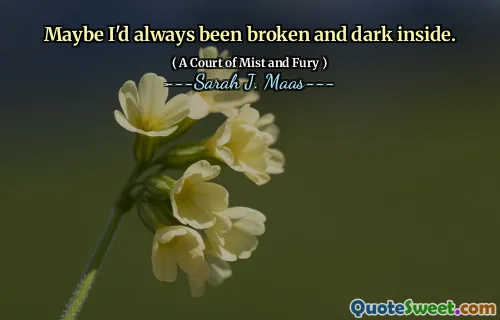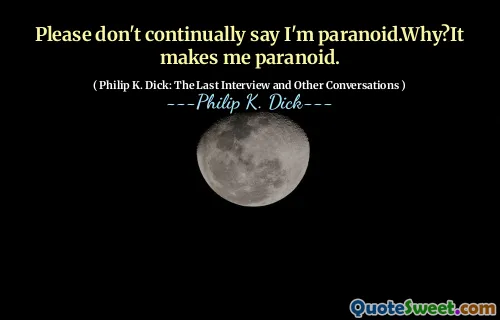
Maybe I'd always been broken and dark inside.
This quote reveals a profound sense of internal struggle and self-awareness. It touches on the universal experience of feeling flawed or damaged within, which many people tend to conceal behind a facade of strength or normalcy. The admission of having been 'broken and dark inside' suggests deep-seated wounds and possibly years of unaddressed pain. Such a realization can be both a source of despair and a catalyst for growth; acknowledging one's inner darkness is often the first step toward understanding oneself more fully. It also hints at the complexity of human identity — that beneath the surface, everyone carries stories of hardship, mistakes, or regret. In literature, characters who confront their inner demons often undergo transformation and healing, provided they accept and understand their shadows. The phrase encourages introspection, challenging individuals to reflect on whether they are defined by their struggles or if there's room for healing and renewal. Moreover, this quote underscores the importance of self-acceptance, reminding us that imperfections and inner darkness are part of the human condition. Recognizing and embracing these parts can foster compassion towards oneself and others. In the context of storytelling, such insights create depth and relatability, connecting readers with characters who are more human, with flaws and vulnerabilities. Ultimately, this thought-provoking line invites us to consider that indeed, many of us might carry unseen burdens, but awareness of these feelings can pave the way toward understanding and eventual healing.

